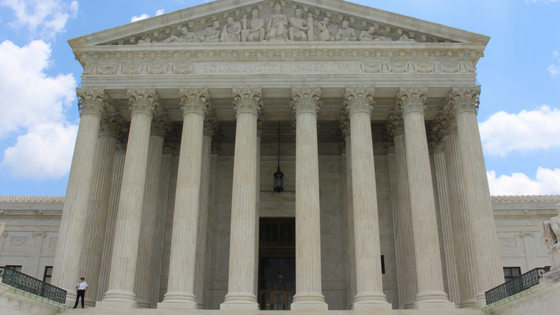The Supreme Court this morning granted a petition to hear arguments in a case that will determine — maybe once and for all — whether the funding mechanism for the Consumer Financial Protection Bureau is constitutional or not.
A copy of the order granting the petition can be viewed by clicking here.
The Court of Appeals for the Fifth Circuit last year issued a ruling in Community Financial Services Association and Consumer Service Alliance of Texas v. Consumer Financial Protection Bureau, determining that the manner in which the agency is funded is unconstitutional and invalidating a rule on payday lending that was issued back in 2017 and was subsequently amended in 2020.
A date for the hearing has not yet been announced. The docket for the case can be accessed by clicking here. A copy of the CFPB’s petition can be accessed by clicking here.
The question being presented to the Supreme Court is:
Whether the court of appeals erred in holding that the statute providing funding to the Consumer Financial Protection Bureau (CFPB), 12 U.S.C. 5497, violates the Appropriations Clause, U.S. Const. Art. I, § 9, Cl. 7, and in vacating a regulation promulgated at a time when the CFPB was receiving such funding.
The CFPB is not funding through the traditional Congressional appropriations process, like most other federal agencies. Instead, it asks for money from the Federal Reserve Board. This was an intentional decision when the CFPB was created a decade ago because the authors of the law that created the CFPB wanted the agency to be independent and not subject to the whims of whichever political party happened to be in control at the time.
In issuing its ruling, the Fifth Circuit determined that Congress had “abdicate[d]” its power under the Constitution and violated the separation of powers.
In its petition to the Supreme Court, the CFPB argues that the Court should hear its arguments why the Fifth Circuit made an error with its ruling and it should do so “promptly,” even going as far as to hear the arguments during its current term. The CFPB notes that defendants in enforcement actions are using the Fifth Circuit’s ruling to seek dismissals and that “new challenges to the Bureau’s rules and other actions can be expected to multiply in the weeks and months to come, and will presumably be filed in the Fifth Circuit whenever possible.”
Interestingly enough, the Supreme Court denied a cross-petition to add two questions to the Bureau’s petition:
- Whether the Payday Lending Rule should be vacated because it was promulgated by Director Cordray while shielded from removal by President Trump under a statutory provision this Court later held is unconstitutional.
- Whether the Payday Lending Rule should be vacated because the prohibited conduct falls outside the statutory definition of unfair or abusive conduct.









